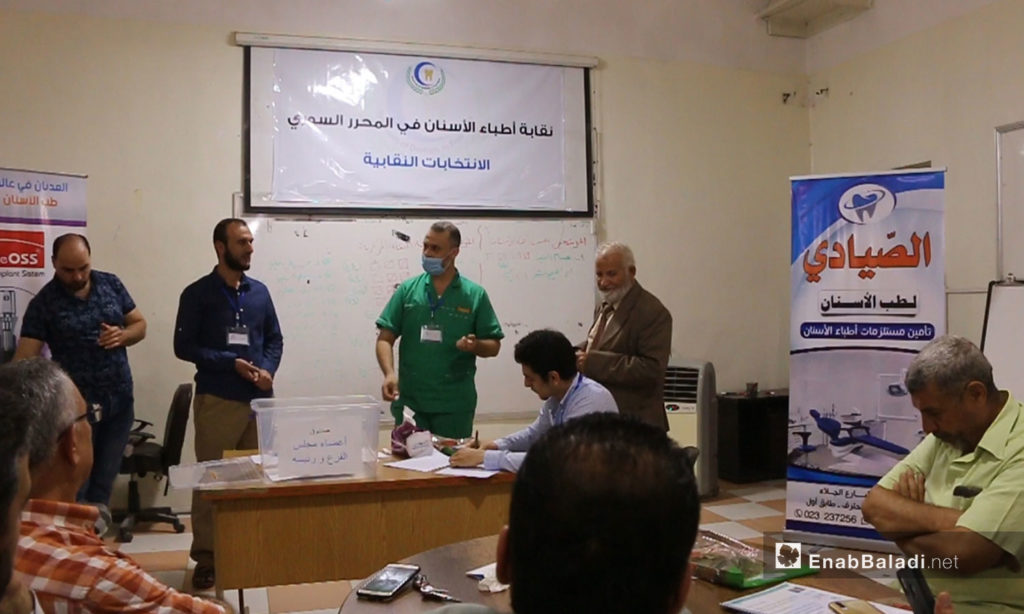Enab Baladi – Idlib
In a small room, dozens of dentists have gathered to form their association for the first time in opposition-held Idlib province, northwestern Syria, after many unsuccessful attempts. Still, the dentists think that this time will be different.
Of the 120 dentists invited to attend and participate in the founding elections, only 57 attended. They began their preparations for the formation of the association through setting up preparatory committees, one of which was in the town of al-Dana and the second in the city of Idlib. Then, a provisional council of ten members emanating from these committees was established.
The provisional council set up the internal system and the admission rules of the dental association, which worked to communicate with the branch of the dental association in the countryside of Aleppo, before the elections were held on 27 August, according to what the president of the association’s provisional council, Dr. Hussam Ismail, said.
The new association is not affiliated to any political party, whether to the so-called Salvation Government (SG) in Idlib or the Interim Government (IG) in the countryside of Aleppo. It is worth mentioning that the absence of stability and the succession of military campaigns prevented the establishment of this association earlier.
Why do dentists need an association?
The president of the provisional council of the dental association, Dr. Hussam Ismail, in his speech to Enab Baladi, defined the objectives of the association as “scaling up the level of work and profession, maintaining a specific level of quality, and providing workshops to develop dentists’ skills. ”
Mustafa Qaq, who participated in the founding elections, said that the most important goal of the association is to stand up to violations in this health profession, such as the opening of dental clinics by dental lab technicians unqualified to practice dentistry.
Regarding the employment of dentists in humanitarian organizations, Qaq told Enab Baladi that the role of the dental association is to ensure a transparent and organized recruitment and selection process, based on experience and aptitude. Besides, the association will take over the task of managing the complaints that patients may submit to determine causes and take the necessary measures to ensure the rights of both the patient and the dentist in addition to avoid the transformation of complaints to the courts and the security services.
Ali Haj Muhammad, who ran for the founding elections, said that the association’s role lies in protecting the dental profession from “fragmentation,” and working to unify wages, which vary “greatly” from one dentist to another in the region.
Among the displacement camps in the region, practitioners of the popular dental profession are widespread, which is considered a “violation of the profession,” as described by the dentist Sattam al-Dairi in an interview with Enab Baladi. He added these practices pose health risks and dangers to the dental profession.
The “trespassers” in the profession do not provide sterilization and adequate health care for their patients in addition to the spread of decay and desiccation among their patients’ teeth. However, their low costs and easy access to tents are what attract patients, according to al-Dairi.
According to the recent report of the United Nations Office for the Coordination of Humanitarian Affairs (OCHA), northwestern Syria suffers a shortage of clinics and medicines, while the Syria Humanitarian Response Plan remains underfunded, with 38 percent of the total requirement funded halfway during the current year.

